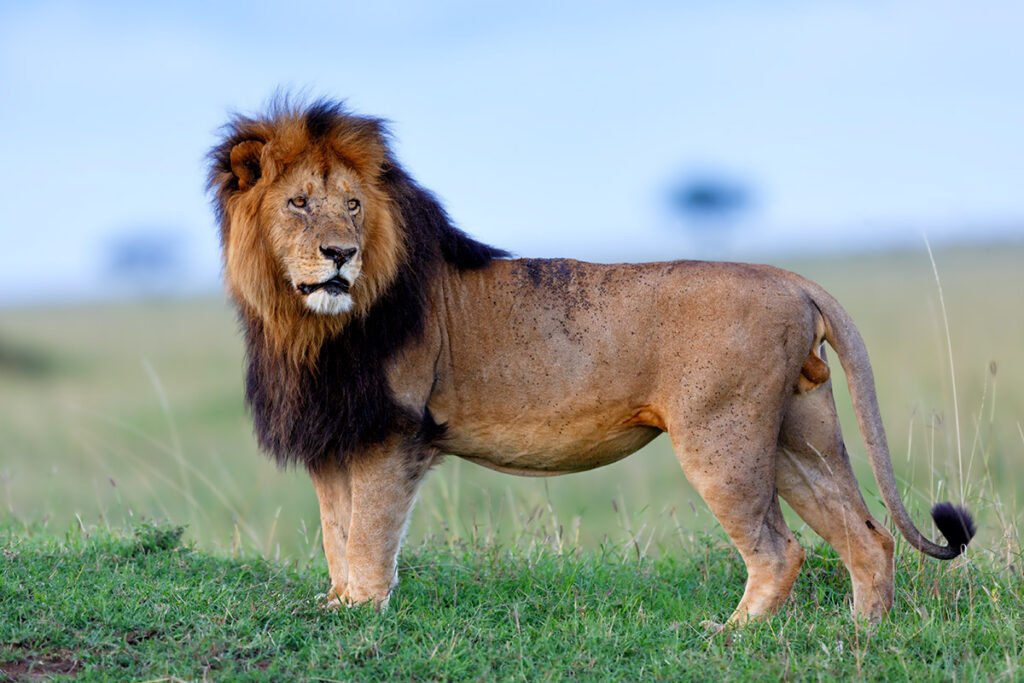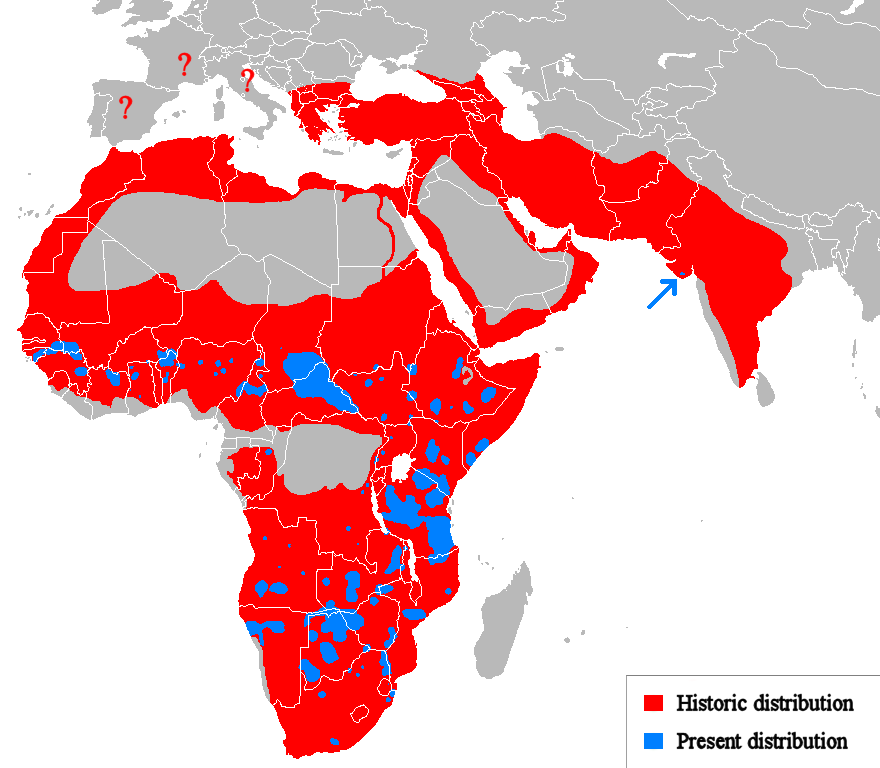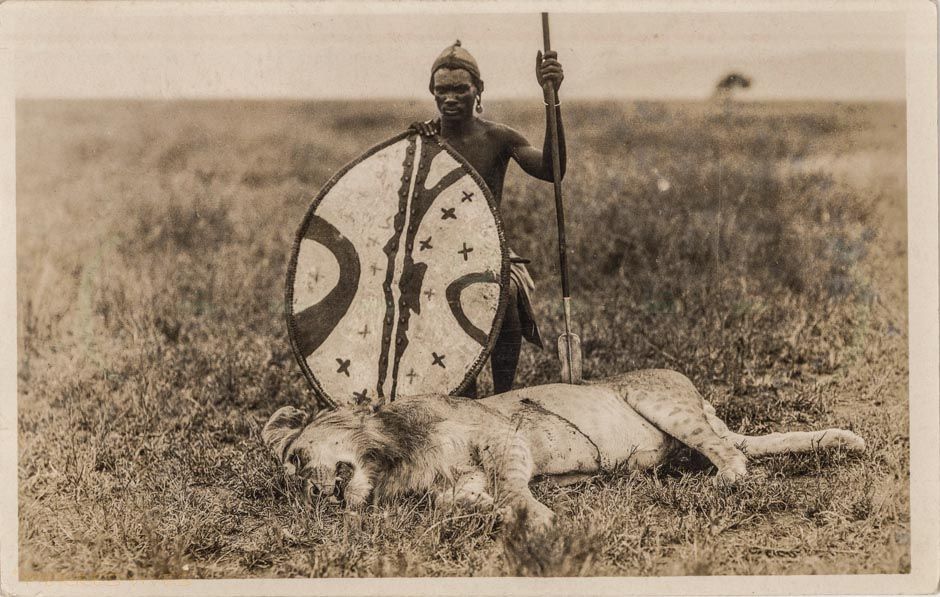
Lion
The lion (Panthera leo) is a large, muscular cat species native to Africa and India. Adult males have a distinctive mane and are larger than females. Lions are social, living in prides consisting of a few males, related females, and their cubs. Female lions often hunt cooperatively for prey like large ungulates. As apex predators, lions play a key role in their ecosystems.
The lion, one of the most universally recognized animal symbols in human culture, has been extensively depicted throughout history in sculptures, paintings, on national flags, and in literature and films. Lions have been kept in menageries since the Roman Empire and were a highly sought-after species for zoos around the world starting in the late 18th century. Ancient Egypt featured prominent cultural portrayals of lions, and depictions have occurred in virtually all ancient and medieval cultures within the lion’s historic and current range.

Hunting
Dominating the hunting scene in terms of the memorable Big 5 or dangerous game hunting in Africa, a lion hunt is not for the faint-hearted, but rather for the serious hunter who demonstrates great aim and dexterity, as both will be needed. Hunting lions in Africa is beyond an adrenalin rush. If you are looking for a hunt that involves an apex predator who is fast, unpredictable, fierce, and on its A-game at all times, then without a doubt, you need to book yourself a lion hunting safari.
Lions are legally hunted in Africa once they are over six years old to generate revenue that funds protections against poachers, who illegally kill lions to supply body parts like skins, claws, teeth and bones for the lucrative Asian market. This regulated big game hunting brings in billions of dollars annually. Lion hunting in Africa is a popular choice for big game hunters seeking dangerous prey. When planning an African safari, big game hunters have an abundance of options for destinations, facilities, and additional species to pursue.
The African male Lion is not renowned as the “king of the jungle” in vain. As the largest cat in Africa, a male lion weighs in 330-570 pounds, while a lioness tops the scales at 270-400 pounds. A male can reach up to 10 feet from the tip of his nose to the end of his tail. With just one good swipe of its large paw, it can take a grown man down – permanently. Although smaller than the male lion, an African lioness is not to be messed with and is well known for her aggressive and fiery nature. If you consider their imposing fangs and razor-sharp claws, combined with their excellent night vision, you can well see why they are the ultimate killing machine and an apex hunter of note.
Since the Cecil the Lion incident in 2016, many hunters have been affraid to hunt the king of the beasts. Consequetly, economies, ecosystems, and lions themselves across Africa have struggled and even failed. In Zimbabwe, 200 lions were executed by the government because of an exploding population and a lack of ecotourism from hunters. However, the total number of lions is declining across the contient of Africa.
The International Union for Conservation of Nature (IUCN) stated that,
“trophy hunting contributed POSITIVELY to Lion conservation,”
and that “among the causes of decline, the most important are indiscriminate killing in defence of human life and livestock, habitat loss, and prey base depletion. Prey base depletion is partly linked to habitat loss, but more importantly to poaching and bushmeat trade. An emerging threat is trade in
bones and other body parts for traditional medicine, both within Africa and in Asia.”

Lions can be hunted in two main ways: baiting or tracking. Baiting involves hanging bait in a tree or placing a large carcass on the ground. A scent trail is created by dragging the carcass before hanging it from a tree. On the other hand, tracking requires extreme vigilance and caution. Once lion tracks are found, a walk-and-stalk approach is used. If the tracks are fresh, it’s time to gear up with guns, water, and energy bars for a rough trek through the savannah and grasslands.
The vast majority of places that hunt lions properly today do it by 1) a strict age based quota system—has to be old enough and limited in number, 2) see Lions as a massive economic asset that needs protecting and nurturing.
Where is the evidence? Lots of places—Bubye, Zimbabwe, Niassa, Mozambique, Luangwa, Zambia (yes there was a time hunting was detrimental to this population since reversed BECAUSE of the conservation tool of ethical hunting).
According to Rowland Ward Ltd, the largest harvested African Lion scored 28 12/16 inches or 73cm.
Check out what hunts are available below in our hunting directory

